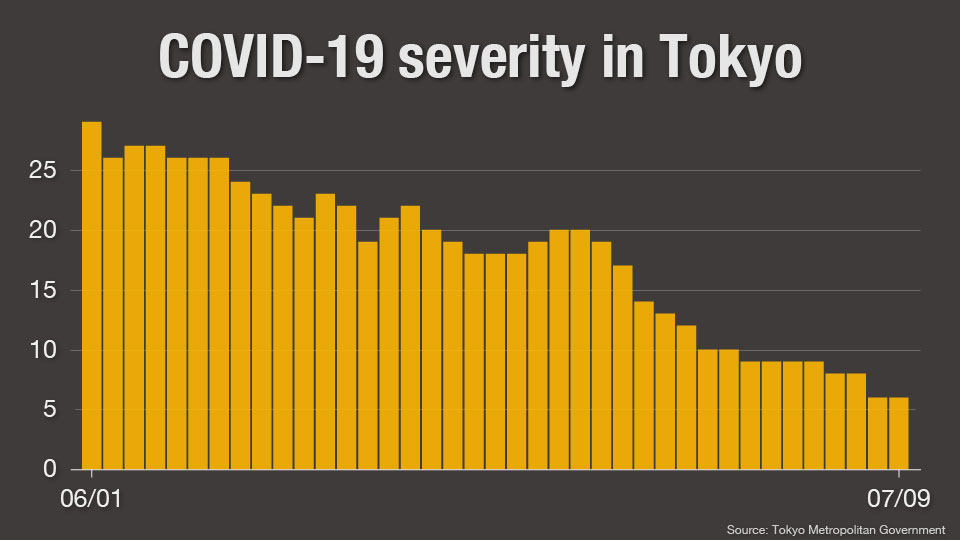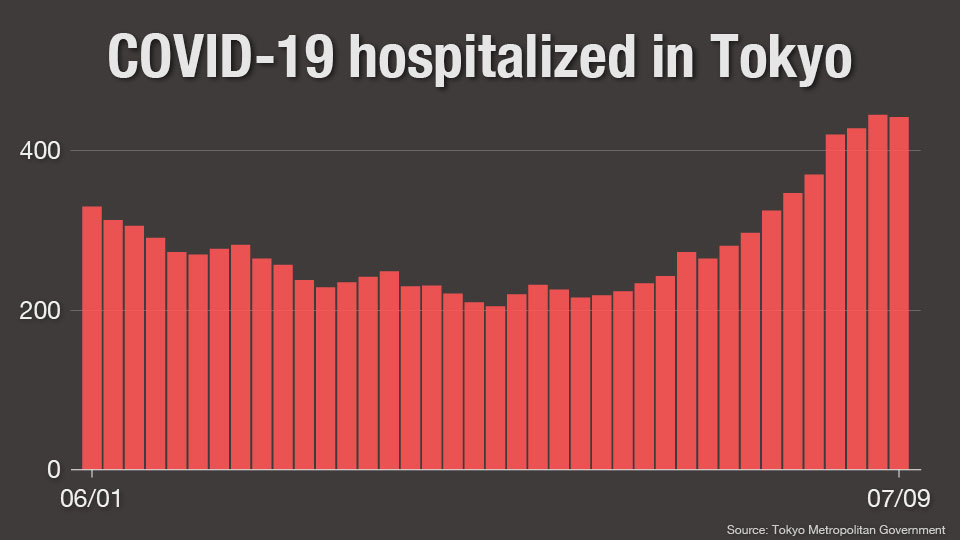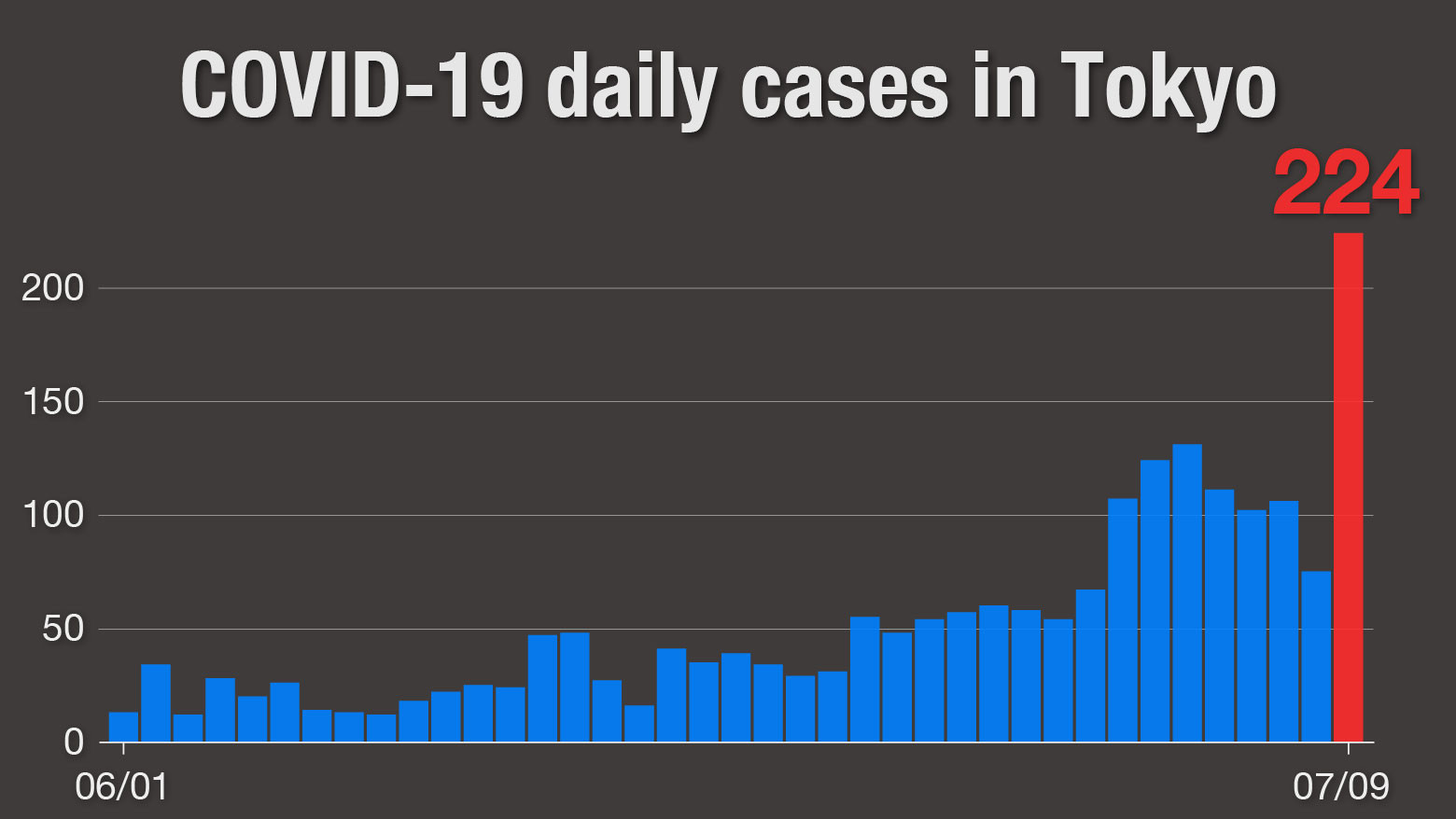Governor Koike, who won re-election on Sunday, said the spike may be partly the result of increased testing in Tokyo, but she said it underscores the need to stay vigilant.
"People in their 20s and 30s account for 75 percent of the new cases and a significant percentage of the new cases have links to Tokyo's nightlife districts," Koike said at a meeting of the Metropolitan Government's taskforce on the virus on Thursday. She also said there has been an increase in the number of infections stemming from young people partying or dining together.
But the national government has gone ahead with plans to relax the rules for large gatherings. Spectators are now allowed back into stadiums for professional baseball and soccer games, and the attendance limit for events has been raised to 5,000 from 1,000. Chief Cabinet Secretary Suga Yoshihide says organizers will be asked to take full precautions to prevent infections.
Prime Minister Abe Shinzo told reporters that the number of people in serious condition is decreasing significantly and the medical system is not under excessive strain.
"The government will work closely with local governments and further strengthen measures against cluster infections, including strengthening the inspection system at public health centers," he said.
Medical system to be strengthened
The number of seriously ill COVID-19 patients in Tokyo stood at just over 100 at the end of April. On Thursday there were only six.

But the number of people being hospitalized has been rising. The figure initially declined after data-collection began in its current form on May 12th. The curve then flattened, before picking up again in late June. The figure on Thursday hit 444, which is as high as it was in late May.

The Tokyo Metropolitan Government plans to secure 3,000 beds for COVID-19 patients as part of efforts to ready the capital's medical system for any surge. The authorities will also open accommodation and treatment facilities for people who are infected but asymptomatic or suffering only minor symptoms.
Professor Hamada Atsuo of Tokyo Medical University says the demographics of new infections could easily change, and it's important for medical facilities to be ready.
"The healthcare system is not severely strained at the moment," he says. "But if infections spread, more age groups will be affected, including the elderly, and the number of severe cases will increase."


